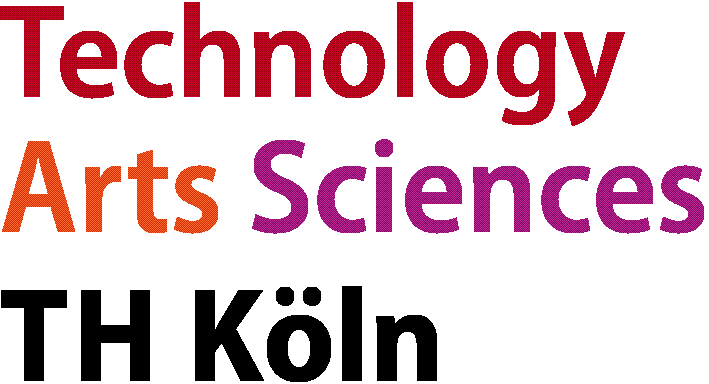
|
|
Qualification aims
This module equips students with the ability to apply numerical methods, develop mathematical models, and utilize data-driven optimization techniques to solve real-world problems, analyze large datasets, and enhance technical systems' performance through the use of advanced computational tools and optimization software.
Students can
- apply numerical methods
- develop mathematical models for technical systems
- data-driven optimization techniques
by
- translating real-world problems into computable form
- analyzing large datasets
- applying optimization algorithms (stochastic gradient descent)
- understanding bias in data
- utilizing programming and computational tools
- using “state of the art” optimization software and optimization algorithms
- using tools for visualizing model states
to
- solve optimization problems in technical systems, improving their efficiency and performance
- identify optimal solutions using various constraints and parameters
- predict system behavior and improve decision-making processes
Module Content
Numerical Methods
- Matrices
- Differences, Derivatives, and Boundary Conditions
- Inverses and Delta Functions
- Eigenvalues and Eigenvectors
- Positive Definite Matrices
- Numerical Linear Algebra: LU, QR, SVD
- Numerical integration of standard differential equation systems (linear, non-linear, formal procedures (Runge-Kutta etc.)
- Boundary value problems
- Differential Equations of Equilibrium
- Cubic Splines and Fourth Order Equations
- Gradient and Divergence
- Laplace's Equation
- Finite Differences and Fast Poisson Solvers
- The Finite Element Method
- Stochastic simulation
- Design and organisation of a Monte Carlo simulator
Optimization
- Optimization criteria
- Optimization basics (calculus of variation, Euler formula, Hamilton formula, maximum principle, etc.)
- Linear Programming (LP)
- Nonlinear Programming (NLP)
- Quadratic Programming (QP)
- Integer Programming (IP)
- Direct (extrapolation-free) searching procedures (pattern search)
- Stochastic procedures (simulated annealing, evolutionary algorithms)
- Application of optimization procedures to practical problems
Data-driven Optimization
- Data from real-world problems (industry, economy, science)
- Data preparation
- Linear regression, logistic regression
- Hypothesis testing
- Classification, Linear discriminant analysis
- Tree-based methods
- Sequential parameter optimization (SPO)
- Model selection
- Treatment of missing values and huge data sets
- Data visualization
- Data mining, CRISP-DM Process
- Learning, especially advanced modelling techniques: Bootstrap, bagging, meta learner (e.g. random forests), empirical learning problems
- Evaluation of modelling results (e.g., error measures, overfitting, cross valida-tion, precision and recall)
Bibliography
- Stoer, J., et.al.: Introduction to numerical analysis. ISBN 0-387-95452-X
- Kincaid, D., et.al.: Numerical analysis. ISBN 0-534-38905-8
- Gill, P.E., Murray, W., Wright, M.: Practical Optimization. Academic Press, London, 1989
- Edgar, T.F., Himmelblau, D.M.: Optimization of chemical processes. Mc Graw-Hill, 2001
- Gekeler, E.W.: Mathematical Methods for Mechanics with MATLAB Experiments. Springer, Berlin 2008
- Neumann, K. und Morlock, M: Operations Research. 2. Aufl. Hanser, München 2002
- Bartz-Beielstein, T.: Experimental Research in Evolutionary Computation. 1.Aufl., Springer, Berlin 2006
- Markon, S., Kita, H., Kise, H., Bartz-Beielstein, T.: Modern Supervisory and Optimal Control with Applications in the Control of Passenger Traffic Systems in Buildings. Springer, Berlin, Heidelberg, New York, 2006
- Witten, I. H., Frank, E.: Data Mining, Hanser, 2nd ed., 2005
- Hastie, T., Tibshirani, R., Friedeman, J.: The Elements of Statistical Learning. Springer, 2001
- James, G., Witten, D., Hastie, T., and Tibshirani, R.: An Introduction to Statistical Learning with Applications in R. Springer, 4th edition, 2014
- Law, A.M., Kelton, W.D.: Simulation Modeling and Analysis. McGraw-Hill, Boston, 2000
- Bartz-Beielstein, T. et al.: Experimental Methods for the Analysis of Optimization Algorithms. Springer, 2010
- Williams, G.: Data Mining with Rattle and R: The Art of Excavating Data for Knowledge Discovery. Springer, New York, 2011
|
 |

|


![Deutsch version not yet available [ger]](http://www.master-ait.de/common/flag_ger_inactive.gif)
![Englisch [eng]](http://www.master-ait.de/common/flag_eng.gif) Englisch
Englisch